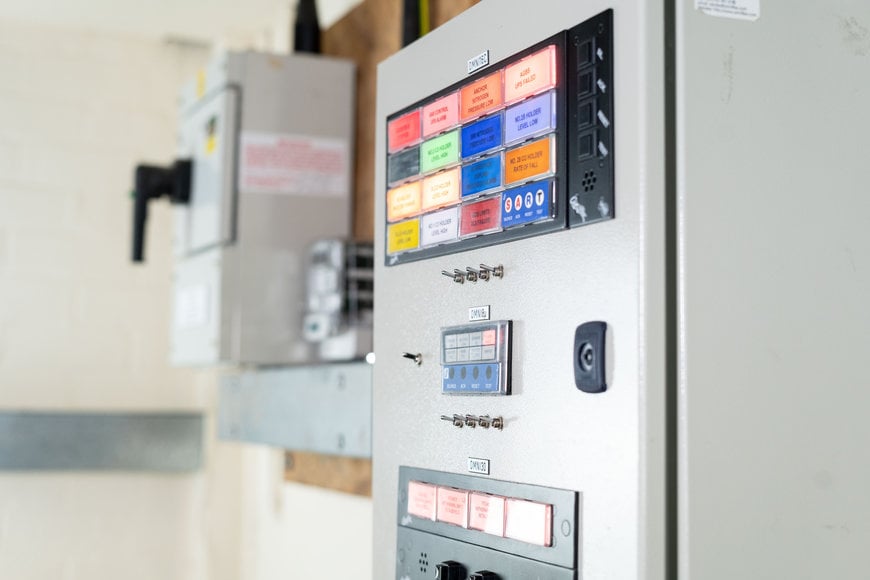www.industry-asia-pacific.com
13
'21
Written on Modified on
Is your alarm annunciator networked to your SCADA?
Alarm annunciators should be networked to a plant’s SCADA system for optimised safety.

Alarm annunciators have been around for decades. Initially hard-wired to critical processes, then for many years plants began networking alarms to their SCADA systems. Today, due to improved safety standards, they’re back to being hard-wired. Both methods have their advantages, but hard-wiring alarm annunciators is more effective for plant safety. Here Gary Bradshaw, director of alarm annunciator specialist Omniflex, explains how plant operators can have the best of both worlds by hard-wiring their critical systems to an annunciator and also networking them back to their SCADA system.
The rise of the alarm annunciator
The 1970s, 80s and early 90s saw a big market for the hardwired alarm annunciator. Most plants containing hazardous materials had all their alarms hardwired to alarm annunciator systems around the plant and back to the control room. These alarm annunciators would have a matrix of numerous alarm windows in panels that would light up and sound an audible alarm in the event of abnormal operating conditions. The issue was that only operators in the immediate vicinity of the alarm annunciator, would be alerted to the abnormal condition.
The solution to this during the mid-1990’s was to network all the alarms to the plant’s SCADA system. This had the advantage of cost effectively relaying the alarm to a safe control room, as well as logging the alarms and using this historical log for post-event analysis. However, notifications on the SCADA screen — when combined with other non-critical alarms / events — were easier to miss and cause confusion to the operators resulting in response times suffering.
Today’s alarm annunciators
The current IEC 61508 safety integrity levels are international standards by which most safety critical systems are rated. It is understood that while zero risk can never be reached, only probabilities can be reduced, there are safety functions that can be put in place to ensure risk is minimised.
The modern-day approach to the use of alarm annunciators is to rationalise the number of alarm windows so that only the safety critical alarms are displayed on them. This makes it easier for the operator to take immediate action. There is now also the option to independently network the annunciator, wirelessly or via Ethernet, to the plant’s SCADA system.

By doing this, data from the annunciator is logged without compromising the safety function if the network connection were to be lost. This is possible by using Omniflex’s Teleterm Unit, which simply connects to the alarm annunciator via a Modbus serial cable. These Teleterm units also provide a flexible interface to other process signals, allowing operators to remotely monitor and control other plant devices on their SCADA systems as well as the alarms.
Teleterm units are designed to enable operators to communicate with a wide range of devices and machines. They can use GSM, Ethernet, RS232, RS485, Licence-free radio or even existing plant cabling up to distances of 10 km. They can also communicate directly with a plant’s SCADA using Modbus TCP, OPC Servers or IoT web service.
Operator response times are an important part of the SIL-rating, so being notified early of any abnormal condition occurring is crucial. Teleterm units also make it possible to send out SMS alerts or emails to phones, tablets and PC’s, which can be customised as to who receives certain alerts. This ensures the relevant personnel are aware of the problem and therefore maximises response times.
Omniflex manufactures a large range of teleterm interface units which can be selected depending on the customers application.
Although alarm annunciators are back to being hard-wired, this doesn’t mean plant operators have to lose out on the benefits of having annunciators networked to their SCADA system. Using a Teleterm unit means operators get the best of both worlds, without compromising the safety function of the alarm annunciator.
www.omniflex.com

